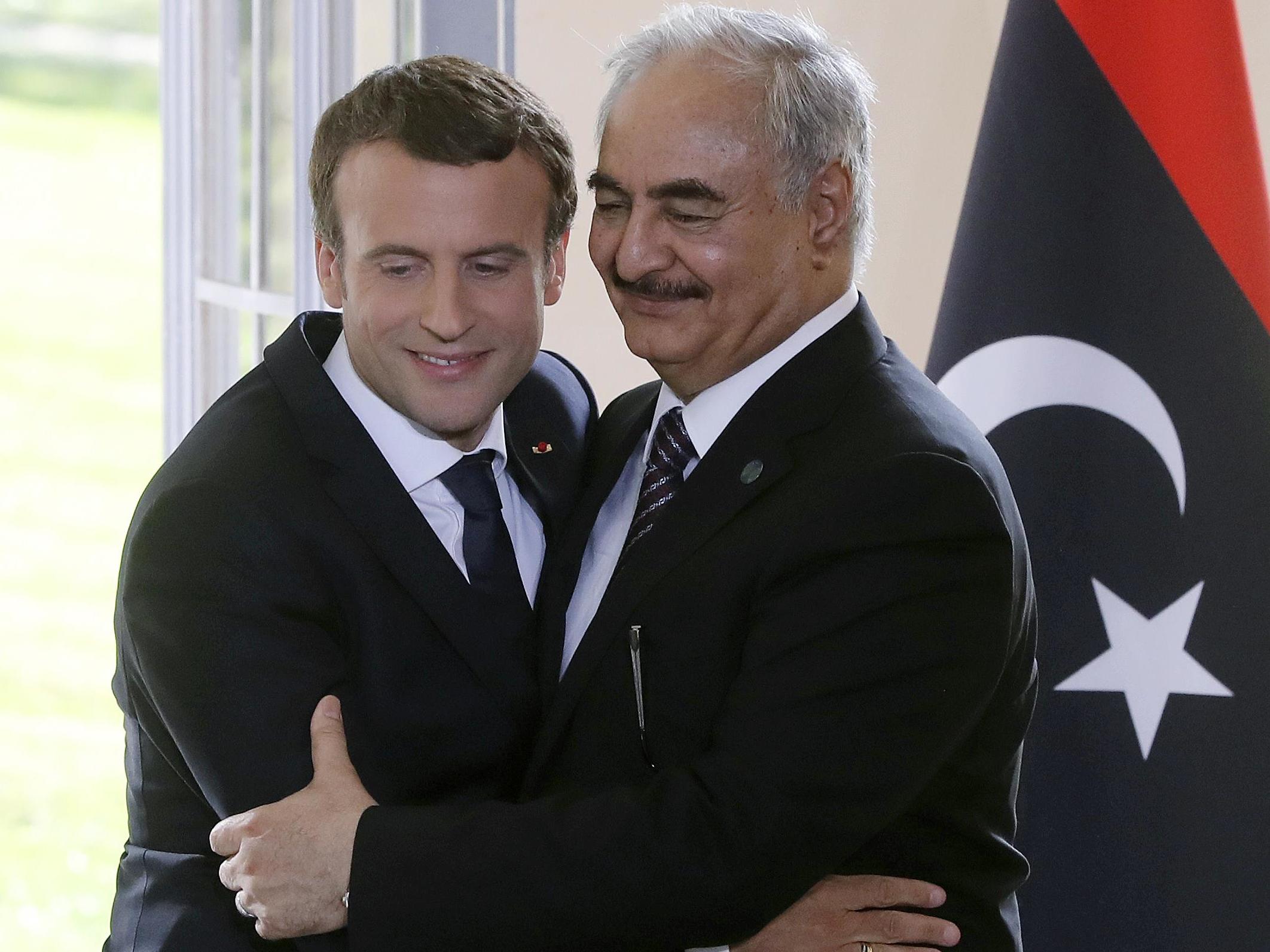‘He governs with an iron fist’: Libya UN envoy warns against backing Khalifa Haftar
The general's opponents in Libya see him as budding new autocrat in mould of Muammar Gaddafi

Your support helps us to tell the story
From reproductive rights to climate change to Big Tech, The Independent is on the ground when the story is developing. Whether it's investigating the financials of Elon Musk's pro-Trump PAC or producing our latest documentary, 'The A Word', which shines a light on the American women fighting for reproductive rights, we know how important it is to parse out the facts from the messaging.
At such a critical moment in US history, we need reporters on the ground. Your donation allows us to keep sending journalists to speak to both sides of the story.
The Independent is trusted by Americans across the entire political spectrum. And unlike many other quality news outlets, we choose not to lock Americans out of our reporting and analysis with paywalls. We believe quality journalism should be available to everyone, paid for by those who can afford it.
Your support makes all the difference.The United Nations envoy for Libya on Monday warned countries tempted to continue backing eastern strongman Khalifa Haftar that he was no democrat and his political agenda was not supported by most Libyans.
Haftar’s Libyan National Army (LNA), which is allied to a rival administration in eastern Libya, mounted an offensive on the capital Tripoli, seat of the internationally recognised government, three weeks ago but has failed to breach defences in the city’s south despite heavy fighting.
The battle for the capital has all but wrecked UN-backed efforts for a peace deal between the rival factions and threatened to further disrupt OPEC member Libya’s oil industry.
“He is no Abraham Lincoln, he is no big democrat, but he has qualities and wants to unify the country,” Ghassan Salame told France Inter radio, referring in part to the revered 19th century US president who led the nation through its Civil War, preserving the union, and abolished slavery.
“But how is he going to do it? Seeing him act, we can be worried about his methods because where he is governing, he doesn’t govern softly, but with an iron fist.”
Mr Salame, whose tone on General Haftar appeared tougher than previously, is touring European capitals to try to secure a consensus for a ceasefire and a return to peace talks as Western and Arab countries remain divided over how to tackle Libya.
France has along with the United States been accused in Tripoli of playing both sides since General Haftar launched his offensive.
Paris has supported Haftar in his efforts to fight Islamist militants in Libya in the past, while at the same time officially backs the UN-recognised government.
France was criticised by analysts and diplomats earlier this month after blocking an European Union communique that it deemed was too one-sided against Haftar.
The statement was eventually approved after additions and a rewording of the text, although it remained critical of General Haftar’s advance.
“I’m suffering from a very deep division at the UN Security Council that prevented a British draft to pass a resolution to stop the firing,” Mr Salame said, referring to a resolution blocked last week by Russia and the United States.
“The temptation of the strongman is widespread. The problem is that the strongman is perhaps not as strong as he seems and that’s the dilemma for those who support him.”
Haftar’s opponents in Libya see him as a budding new autocrat in the mould of Muammar Gaddafi, who was toppled by a NATO-backed uprising in 2011.
Mr Salame was in France after visiting Italy, Libya’s former colonial ruler, and he said Foreign Minister Jean-Yves Le Drian had told him Paris was fully behind his efforts for a ceasefire.
“We cannot ignore the General Haftar phenomenon, but one must not go so far as to adopt his political project entirely because his political project is a project which does not suit a good part of the Libyan population,” Mr Salame said.
Reuters
Join our commenting forum
Join thought-provoking conversations, follow other Independent readers and see their replies
Comments